MRSD: Beyond Just Robotics
Shaolin Kataria
MRSD 2024
Shaolin joined MRSD just after his undergrad. He pens a journey of his exploration of both interests and personality; threading tremendous personal and professional growth during the course of the program.
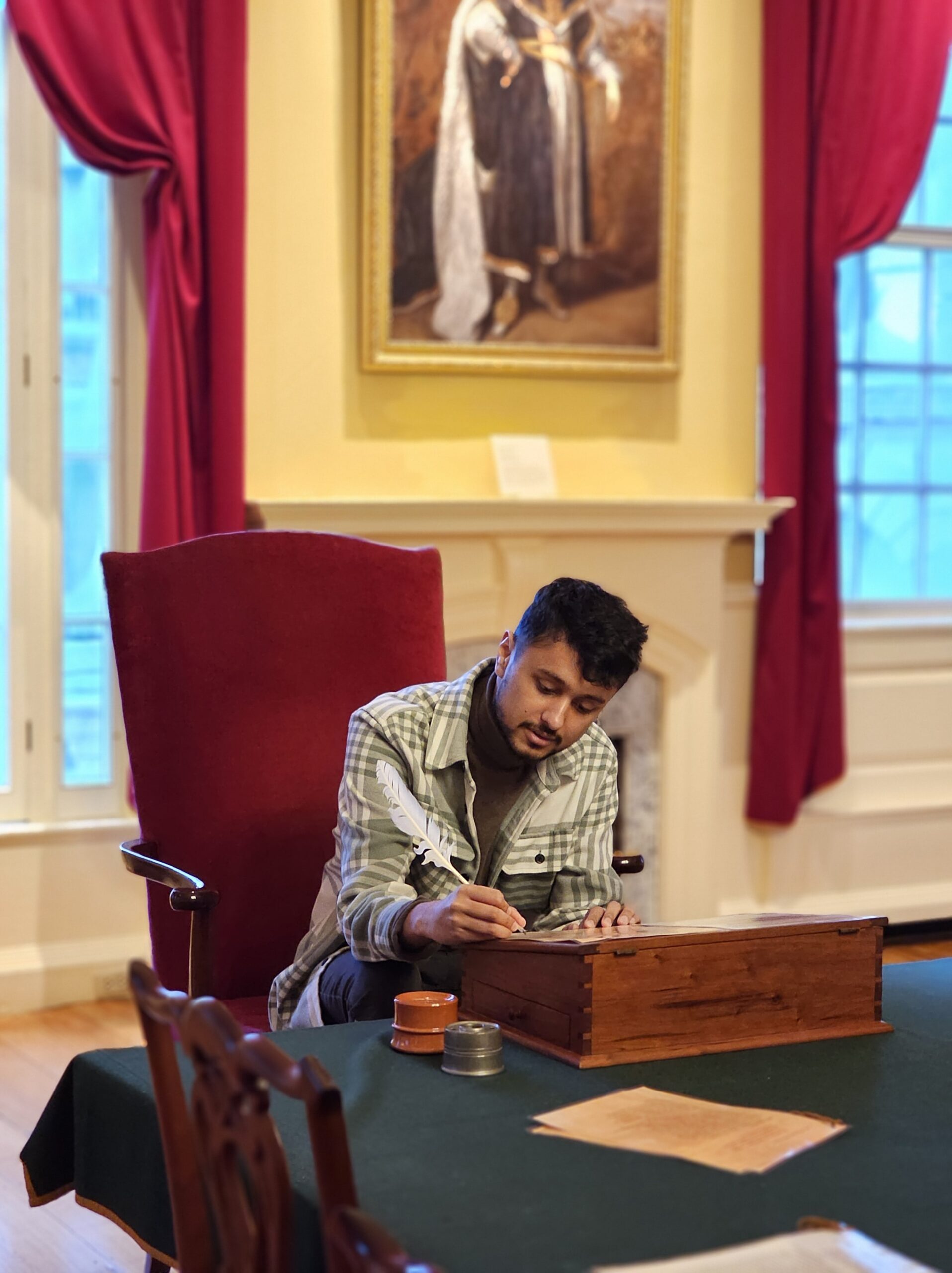
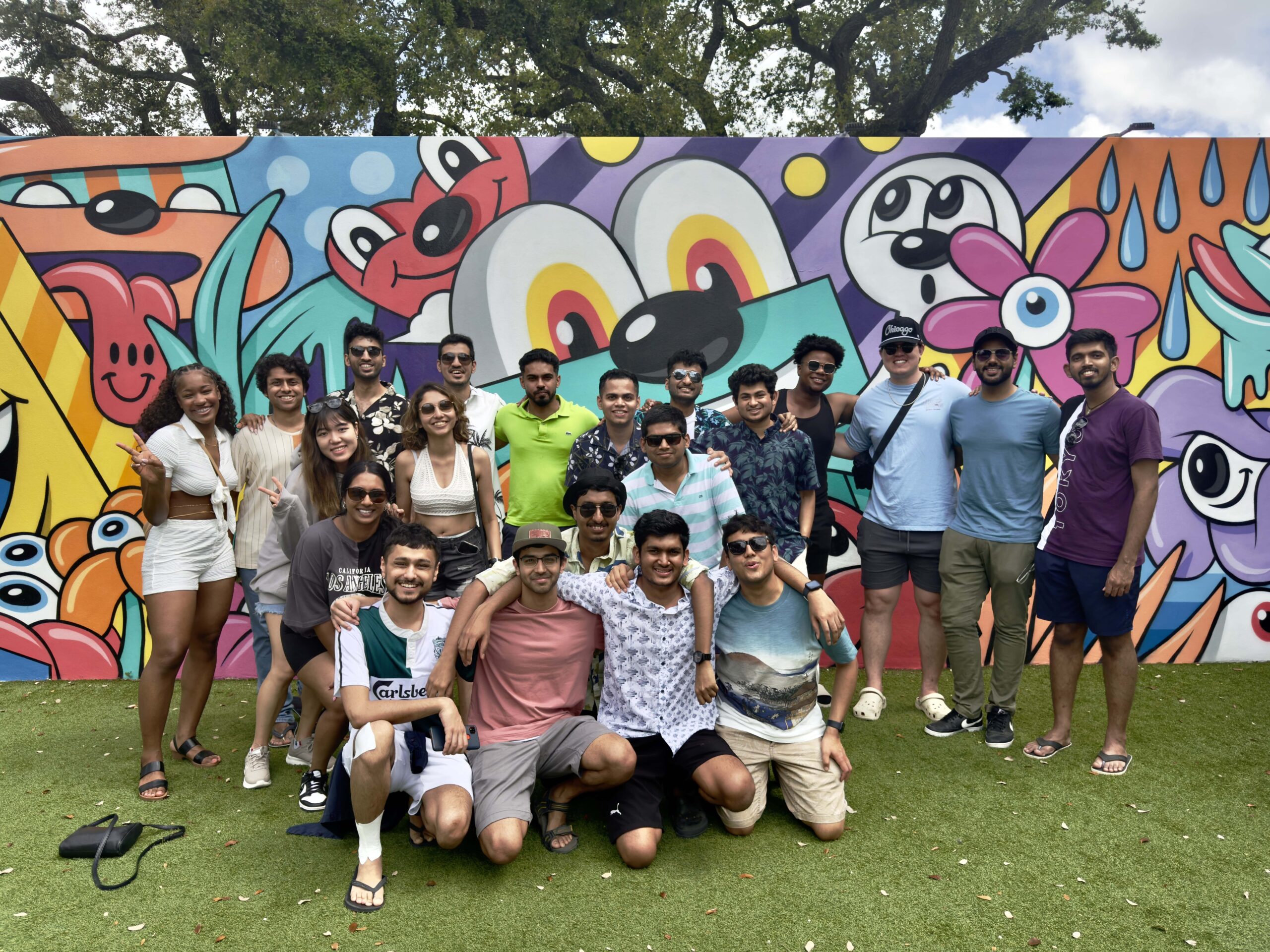
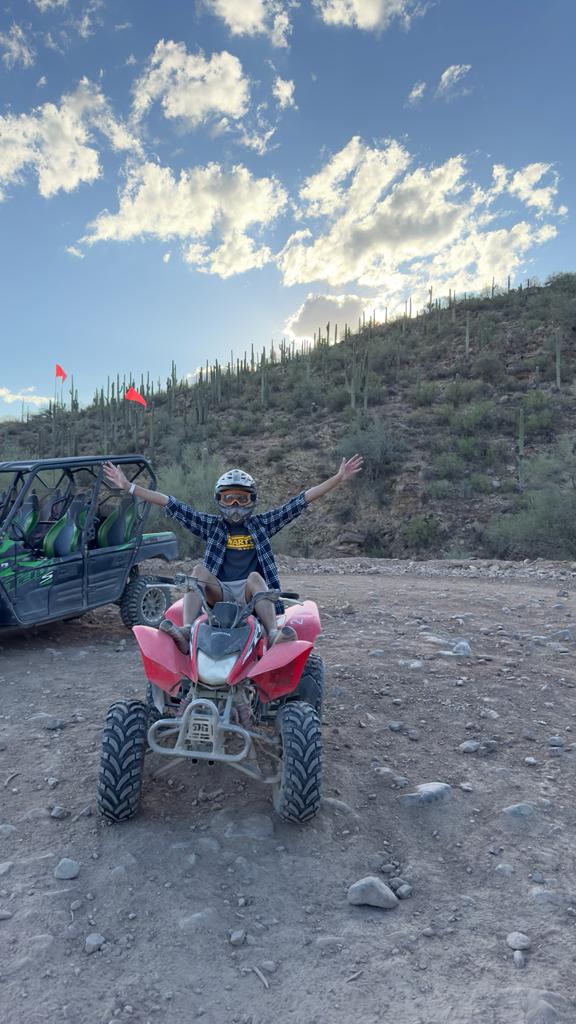
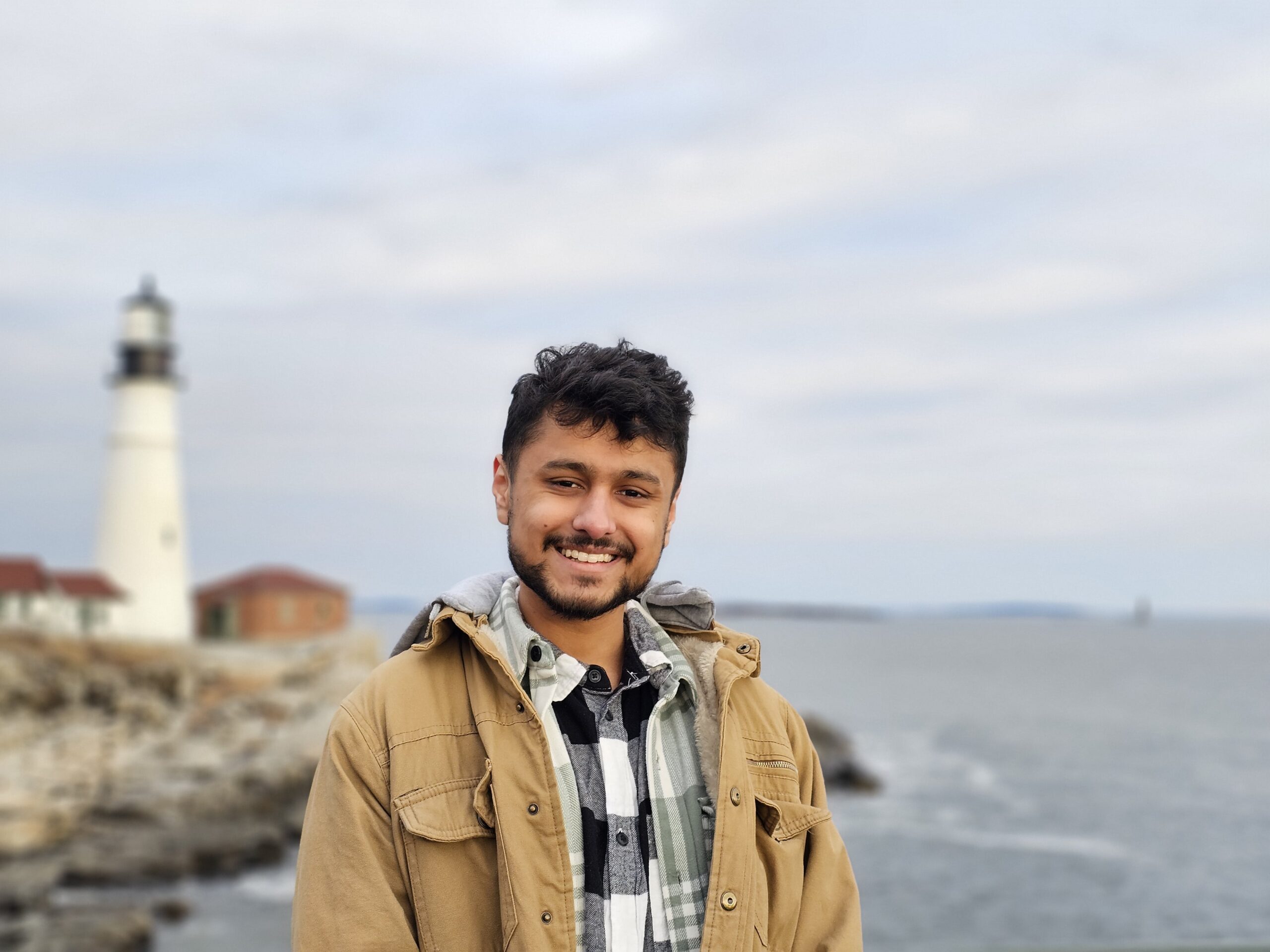
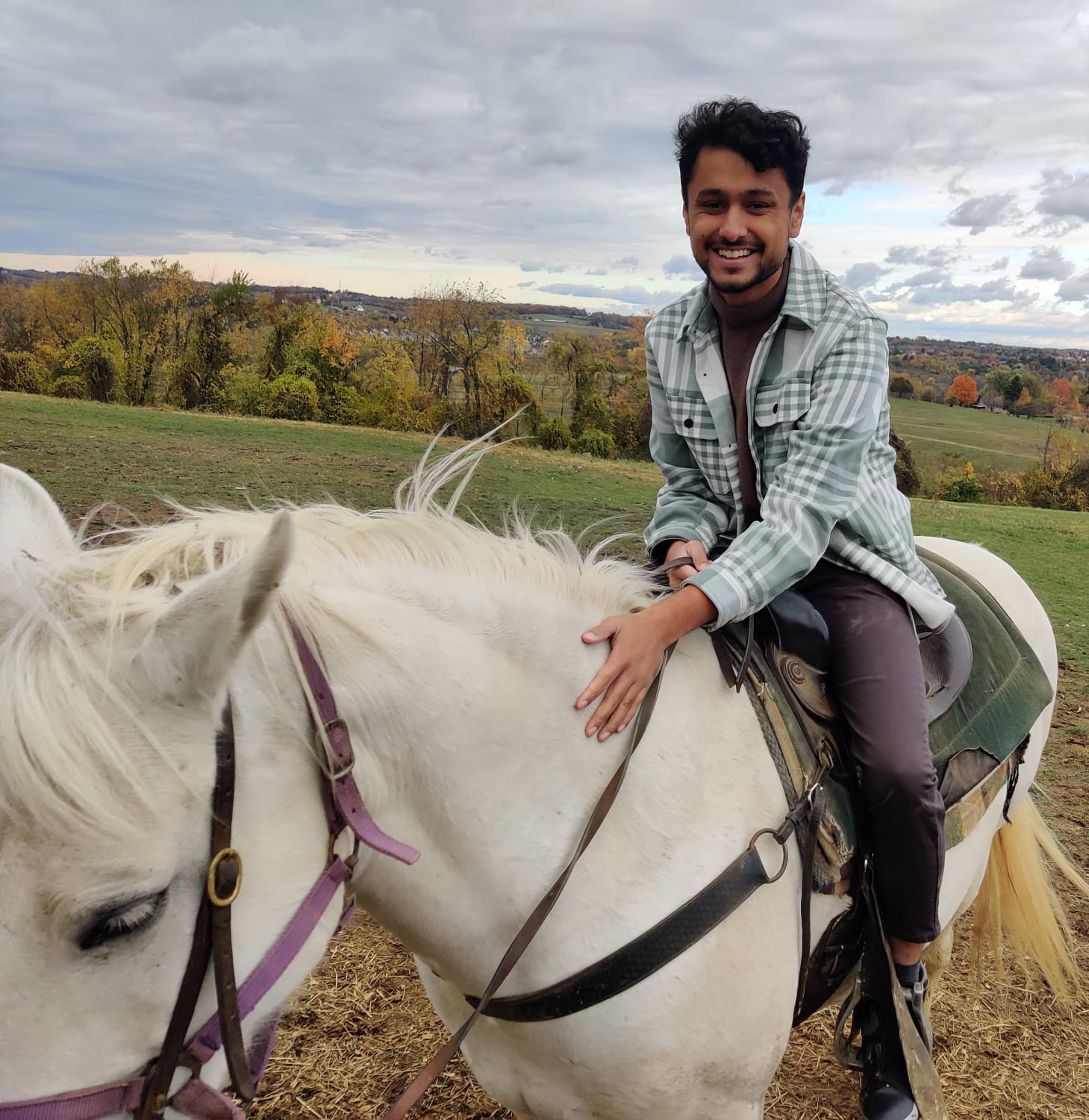
Application and Admission
When I started with grad school applications, I had a distinct sense of clarity about the MRSD program because it was closely related to what I was looking for in a grad school experience: Robotics, Industry, and Entrepreneurship. I explored a lot during my undergraduate experience to narrow it down to these fields. The MRSD program resonated with these needs, and this match made the admission happen. And if you want to spearhead the Robotics development and be part of an environment that fosters it, there are only a handful of top universities to go to. Not only did coming to the US mean getting an education, but being able to practice my skillset with far more opportunities than I would have elsewhere.
First Month
Before coming to CMU, I spent a summer in Zurich at ETH, working for one of their labs. After coming here, I was fresh off my European experience, a “high” of travel, people, and experiences I had never had before. So, adjusting again to the concept of consistency in curriculum, friends, and living in one place took time. All that adjustment and the fact that I was late when I came here added to the effort because everyone had already formed friend groups. Having this in my mind made me feel like I needed to catch up and do more in less time. This process is essential as part of the MRSD experience because that is what makes up our capstone teams, whom we spend most time with during the first three semesters. It requires you to talk to people, which, again, I had not done as much as everyone else. This lack made my only metric of project selection to be the project I was interested in. During this process, I got to speak with a lot of people. When the project I was interested in did not receive much interest, I turned to picking people based on how well I could see myself working with them. I went with values. Inclusive, treating other people with kindness, being curious to learn, and not coming in with the mindset that they have their plan sorted. I believe this encourages growth. The lack of this encourages rigidity. Looking back, I am satisfied with the choices I made.
So, it began. I entered my first lecture, and it suddenly hit me. I did not understand anything in the lecture. I thought I was going to spend more time getting to know people. Now, I was in the dilemma if I was in the right place. I attended my second lecture. Same. Nothing. It felt like a different language altogether. When I heard people answering what they wanted to learn in Robotics, I didn’t understand them. I started thinking if studying at a better undergraduate college in the past had done this for them. I didn’t allow myself to be discouraged. I started talking to more people to develop an understanding enough to grasp the concepts in the lectures. But, eventually, you can see in people’s faces that you are bothering them. And it’s not anyone’s fault. They don’t have to bring me up to speed with the base level of understanding that they already have. But what then solves my problem? I first started with belongingness. I tried to realize my strengths. I knew I was curious. I had interacted with enough random people in Europe to be able to network well. I knew I could understand people well. I knew I could sell myself well. Because if everyone here is far better in terms of what they know, and I’m at the same place without their experience or knowledge, then I must be gooo-ood at selling myself.
Imposter Syndrome
But that confidence does not instantly help with the imposter syndrome. I was always aware of the term but had never experienced it. I started looking up online about resources and ways to deal with it. An interesting anecdote about a veteran professor pacing up back and forth, stressed before a lecture, put things in perspective for me. I tell this anecdote to people to this day. That means even if you think, read, and understand everything, there will always be something you do not know. The cloak of invincibility is an illusion. I told this to a friend at the time. I thought of him as the smartest in the class. He shared that he was going through the same thing. If he was going through the same thing, the imposter syndrome does not reflect my true abilities. Instead, it is simply a mindset thing. This realization broke my imposter syndrome. Not that it made me believe I was as good as everyone else. But I was as good as the Shaolin admitted to CMU. This experience is one of the reasons why I believe we should share our problems to as much an extent as possible. Not only does it help us get the assistance we require, but it also means that you are helping others facing the same thing. I understand taking time with significantly more intimate problems, but it is okay to acknowledge that things can bother you, that you are not immune to problems, and that you are only human. That allows us to develop trust with the people around us. This process opens up a fresh experience for the kind of grind we go through at Carnegie Mellon.
Regaining that Self-Value
Talking about classes, the only class that I understood in the first semester was Systems Engineering and Project Management for Robotics. It made intuitional sense, and the course content was well-structured. We could directly apply it to our capstone at the time. This understanding made me feel more comfortable about being here because there was something I could relate to and feel excited about.
This course allowed me to perform the requirement elicitation process with the customers. This initiative, process, and result led to our entire problem statement for the remainder of our capstone experience. I was finally able to express myself. This experience made me understand how important it is to open avenues for people to express what they are good at. Otherwise, it induces a feeling of lack of purpose. I started to feel more like I belonged. I recognized traits inside of me that I had never observed before coming here. These were the art of networking, cold approaches, reading the room, presentations, and being a good team player.
The Turnaround
With this newly found self-belief and curiosity, the second semester was a polar opposite experience to the start of my first semester. I had a business class in which I could prove myself with the quality of my work. For a change, the most technically adept people were seeking business and people’s advice from me. This intuition was despite me never being formally trained on those things. Just what I had let the experience of life teach me. Just what my curiosity taught me. Just what my intentional observation taught me. The tech people found this intentional intuition with their interests. This difference does not mean one or the other is better but highlights how important it is to have a diverse team for the best overall growth and learning development for everyone. That’s when I realized that I belonged here. What comes after you get rid of that lost feeling? You get to work. Our team had a solid split of responsibilities with how we were heading our capstone project. It made for multiple healthy customer relations, idea validation, demoing, and overall tech development. For the coursework, I took a course the curriculum of which resonated with me. No one else from my batch was taking it, but I decided to take the leap and still go for it. And it paid off. I put in quality ideas in every Ethics and Robotics class discussion. I did the same for my assignments. Forget struggling with assignments. I was preparing for class with pre-reads. That’s how much on top of things I was. Illah takes this course every spring. He recognized my work intuition and hard work so much that he offered me a Graduate Research Assistant position in his lab. This employment made me the first paid RA in the whole program for our cohort. I did not even realize this on my own. People around me were telling me these things. I find it funny how milestones are byproducts if you start appreciating the process. It is like almost every motivational video ever has said this. I wanted to take up extra work since there was a lot to learn, and there are way too many resources on campus for you to have free time. I made time to attend the Swartz Center’s CONNECT series events. These events provide a broader spectrum of insight into things to consider when starting your company.
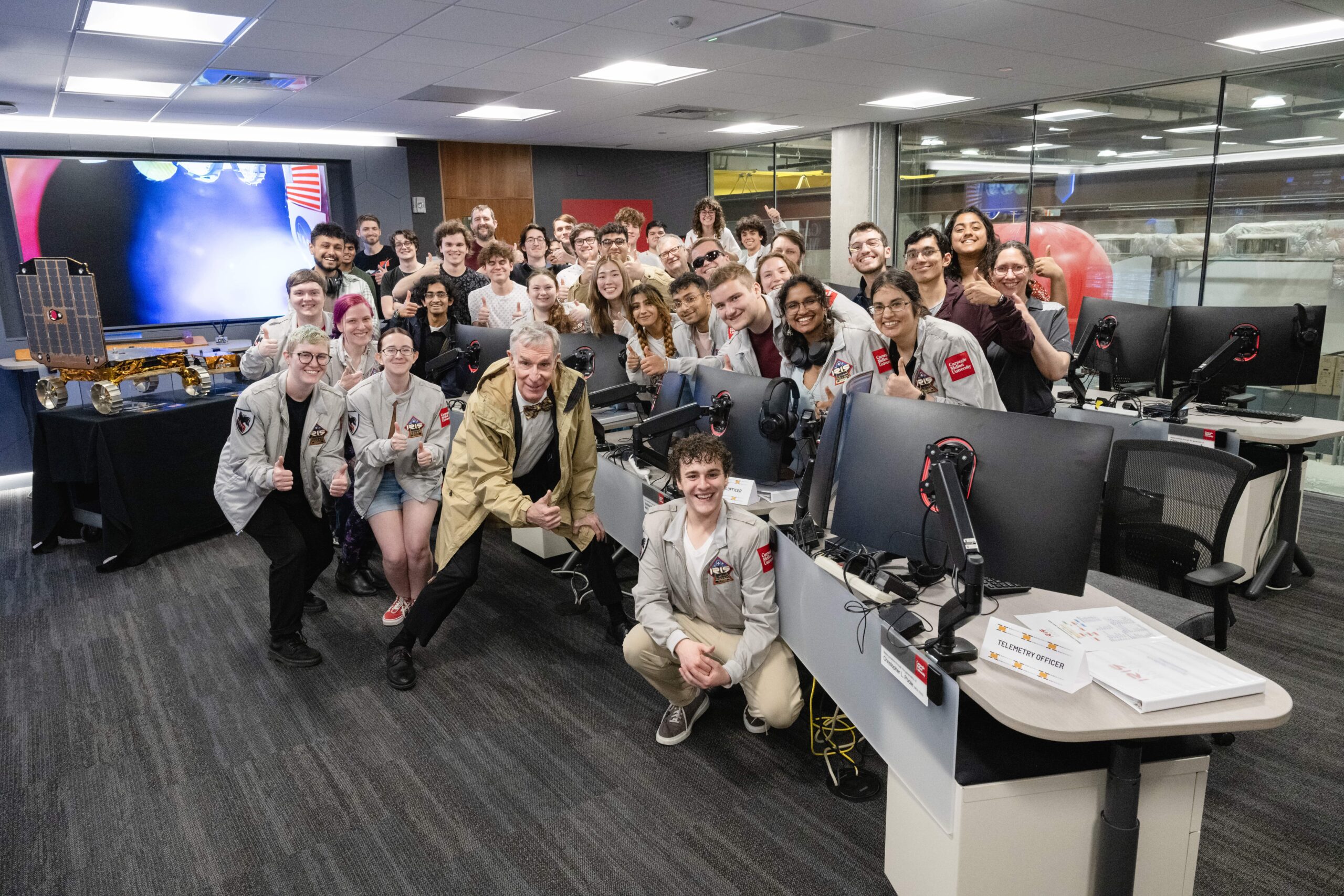
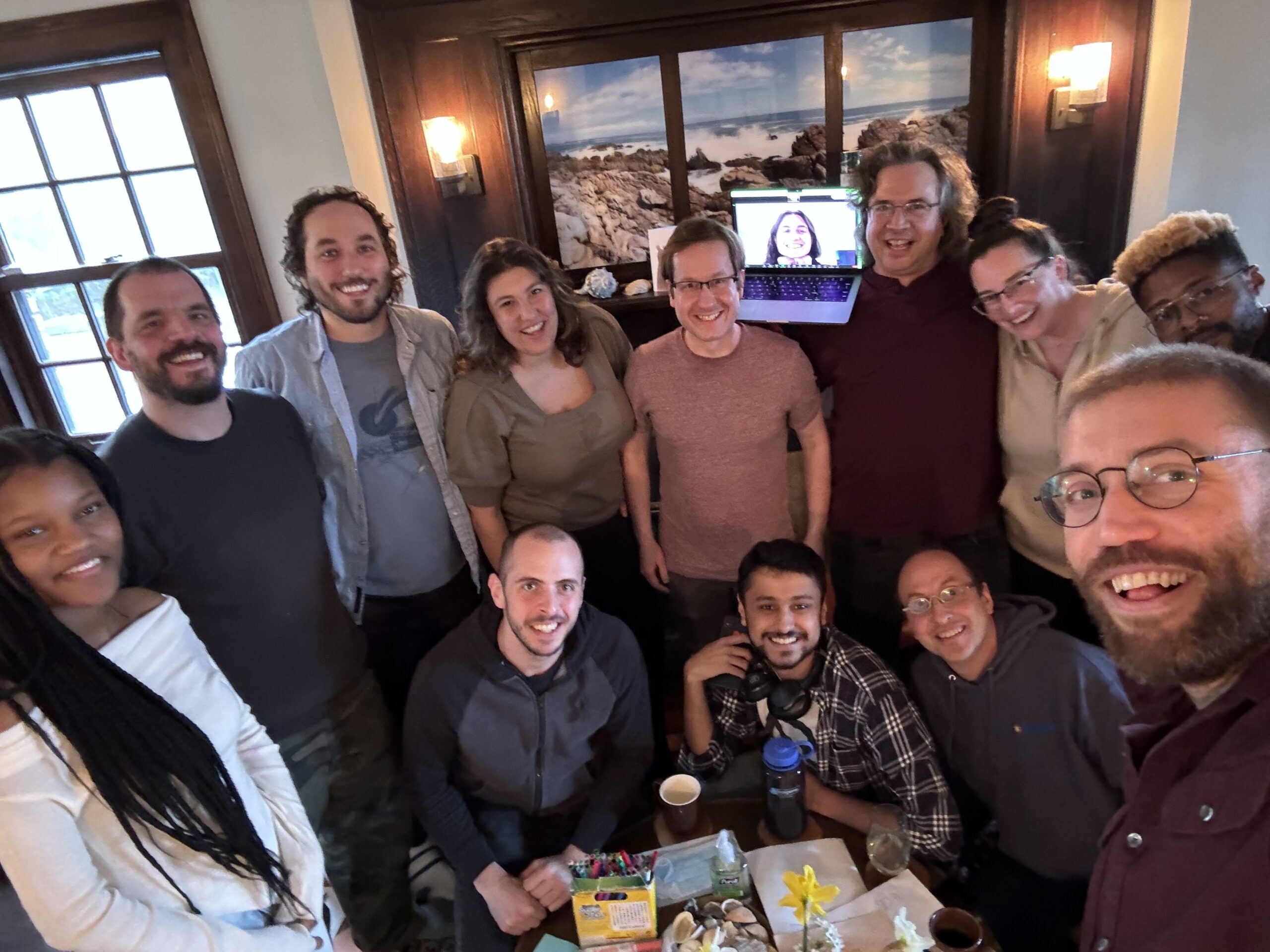
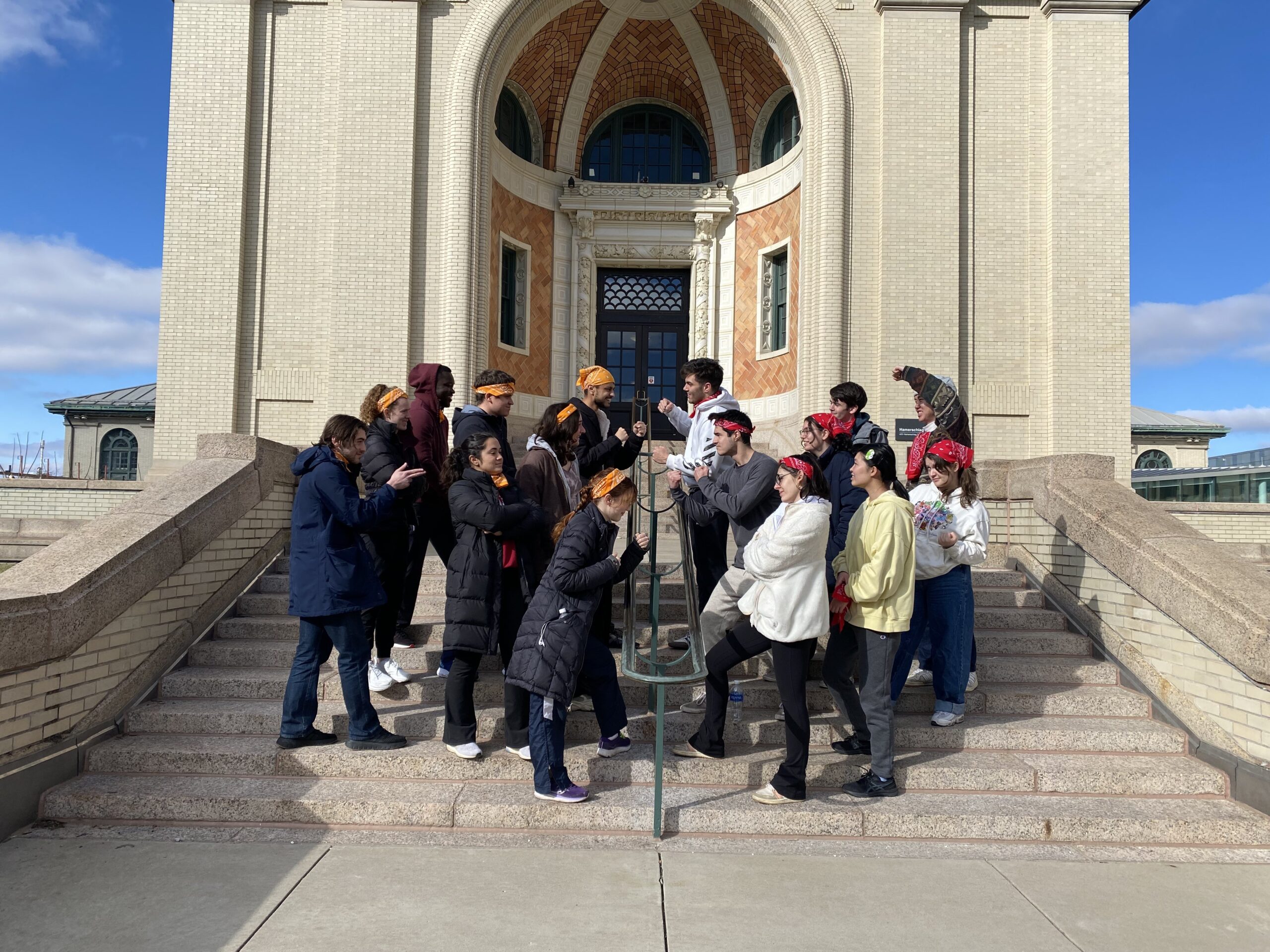
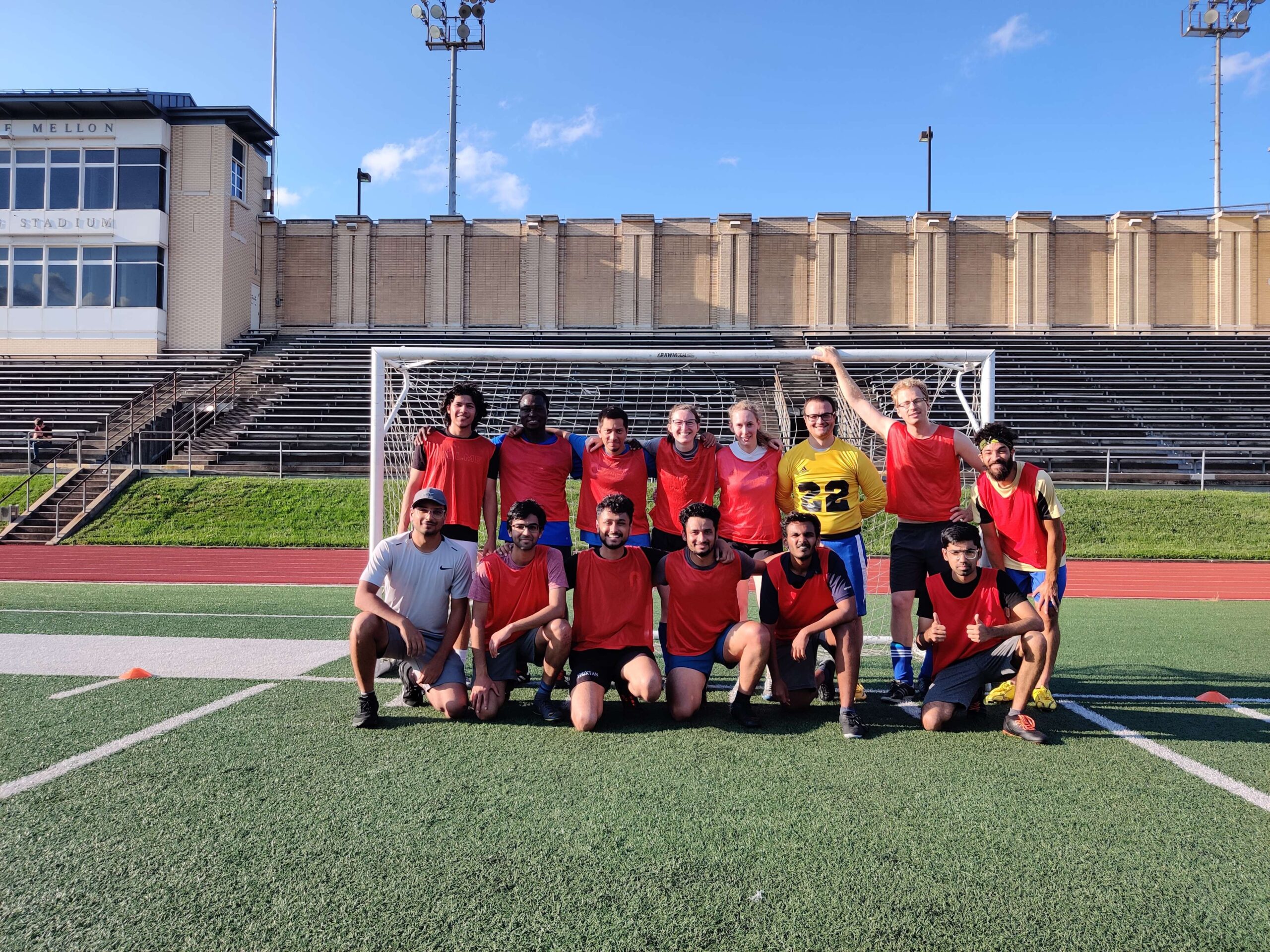
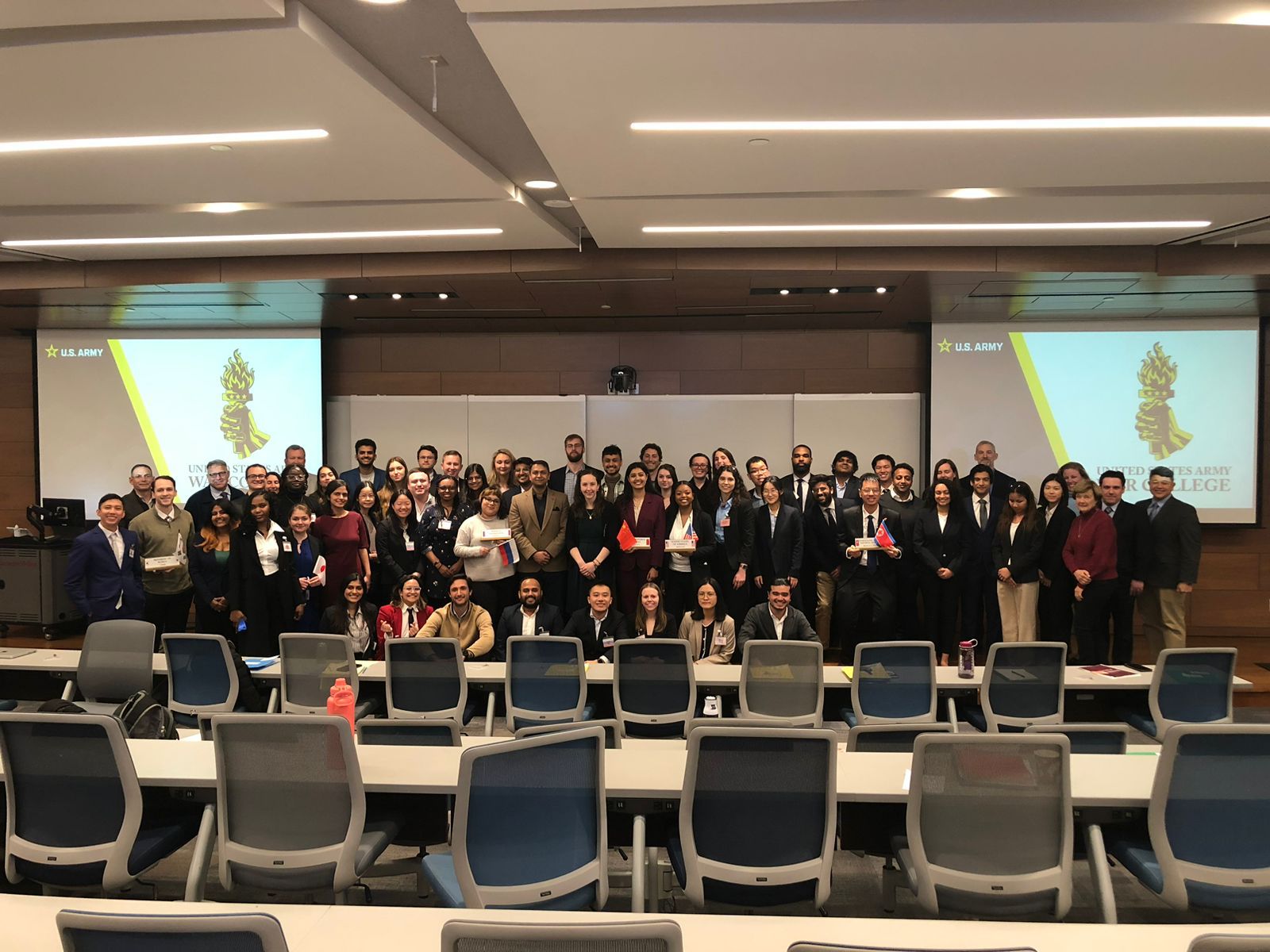
Outside the curriculum
Once you see your value and realize your impact potential, you start thinking much more broadly about things that you want to do. This impact includes doing work outside the curriculum.
To give context, I come from a historically oppressed caste in India. It was always in my mind because of what I had seen and heard growing up. It is hard at first to be in an environment where you see people far more privileged. I recognized access to connections, resources, family situated around the world, generational trauma, and triggers from the news or politics as the big distinguishing factors. I always had a fire to do something about this, but raging on social media in undergrad, talking to friends, and debating with people only does so much to fulfill your purpose. The societies at CMU are very collaborative and supportive. I contacted the Executive Director of the Center for Student Diversity and Inclusion. She connected me with my now friend Bikash in Heinz, who introduced me to more people working on this. I got involved. We conducted movie events to bring awareness, painted the fence, and collaborated with researchers to prepare carefully crafted informational content. Bringing awareness is one thing. We extended an arm to have actionable suggestions for people who go through this in a generalized manner so that it applies to all identities that experience these emotions. Soon after, I was writing a constitution for the student body, attending Graduate and Undergraduate Student Assemblies to push this idea and raise awareness, and meeting so many people I would have never met in any other circumstance. People were impressed by the thought and vision I had. The Title IX coordinator chose me as the only graduate student representative for the working body to revise Title IX policies on campus. I was glad that all these departments were becoming aware that people in robotics can be more than just involved in gearing societal change on campus.
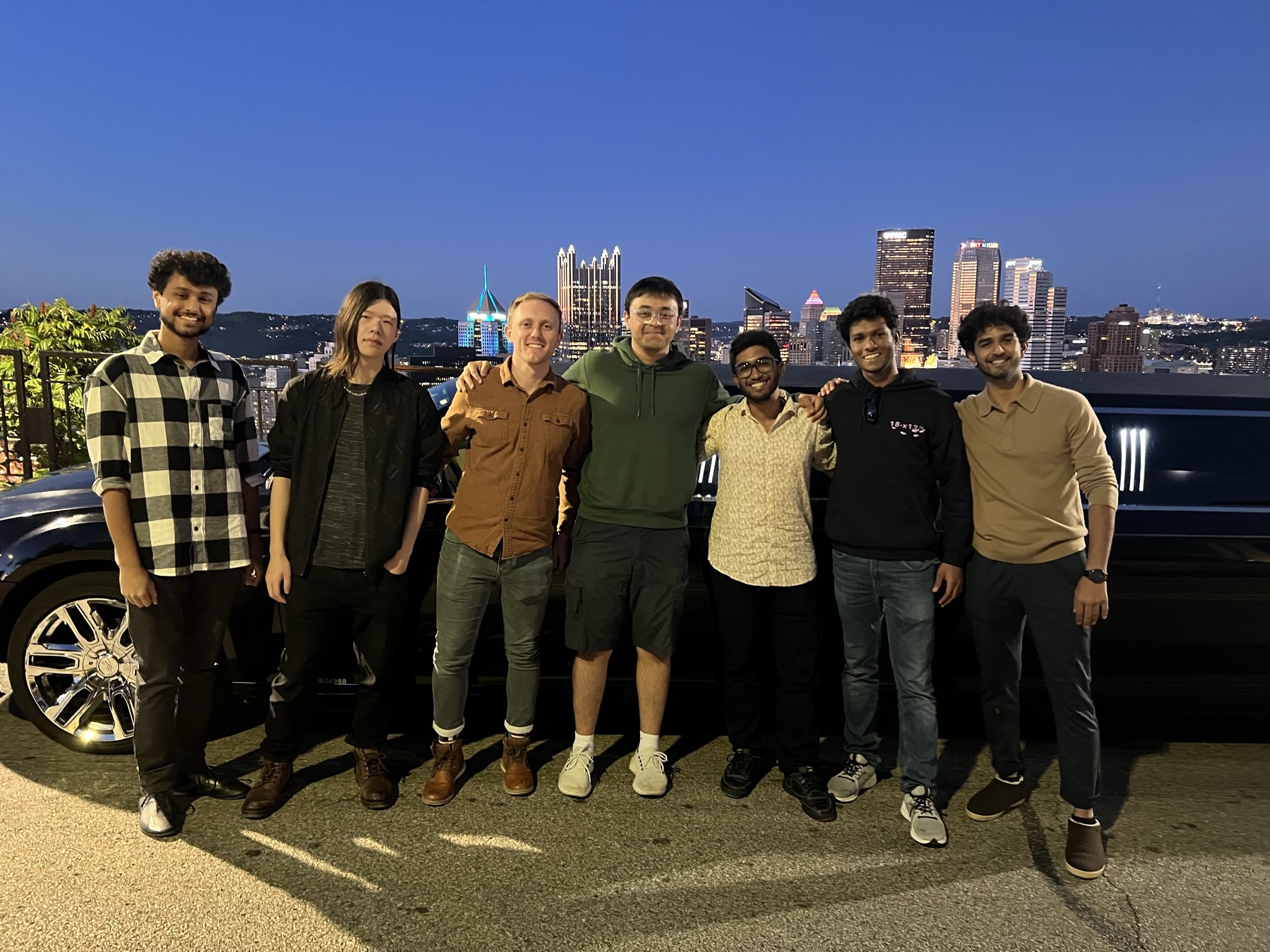
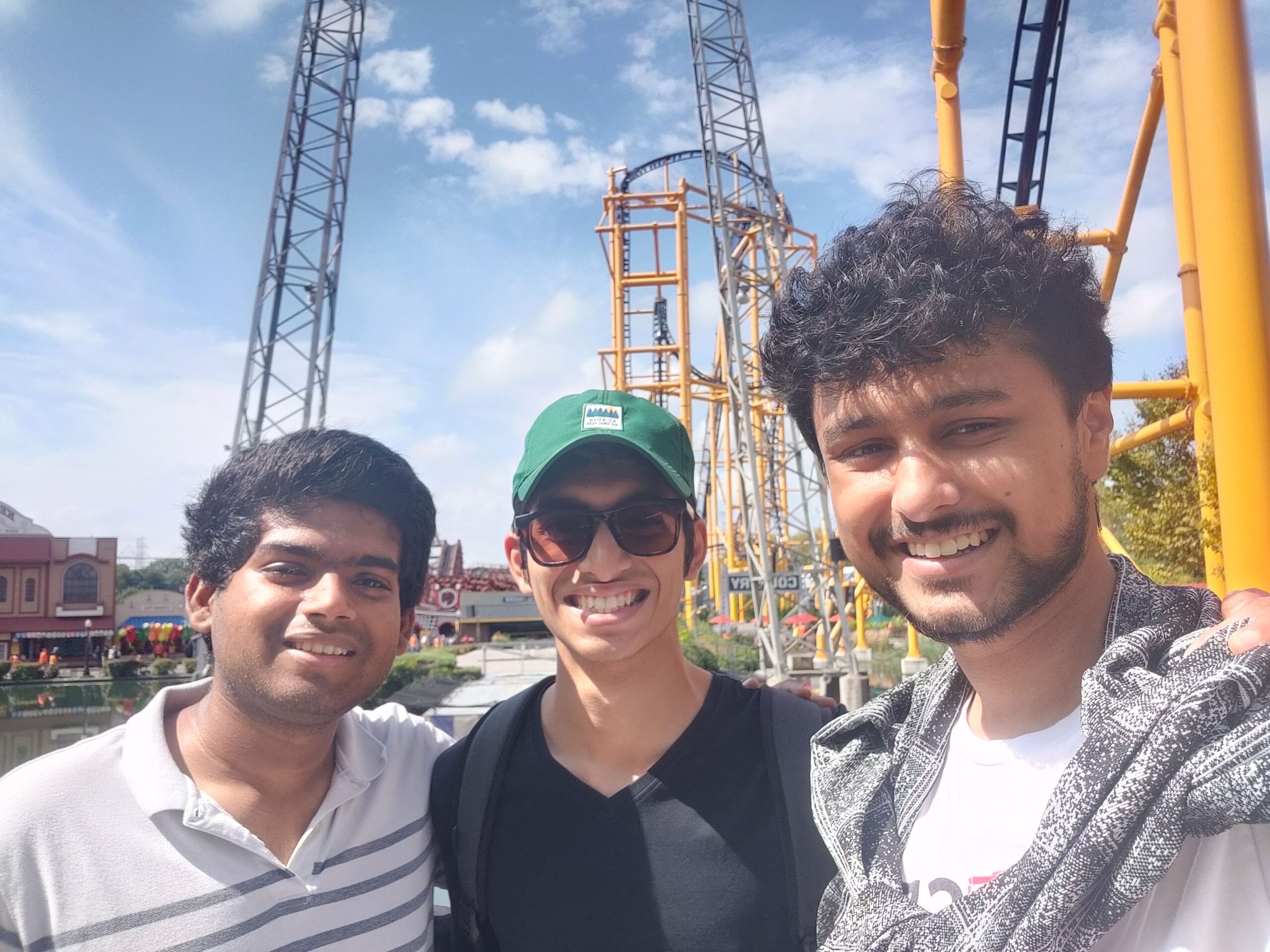
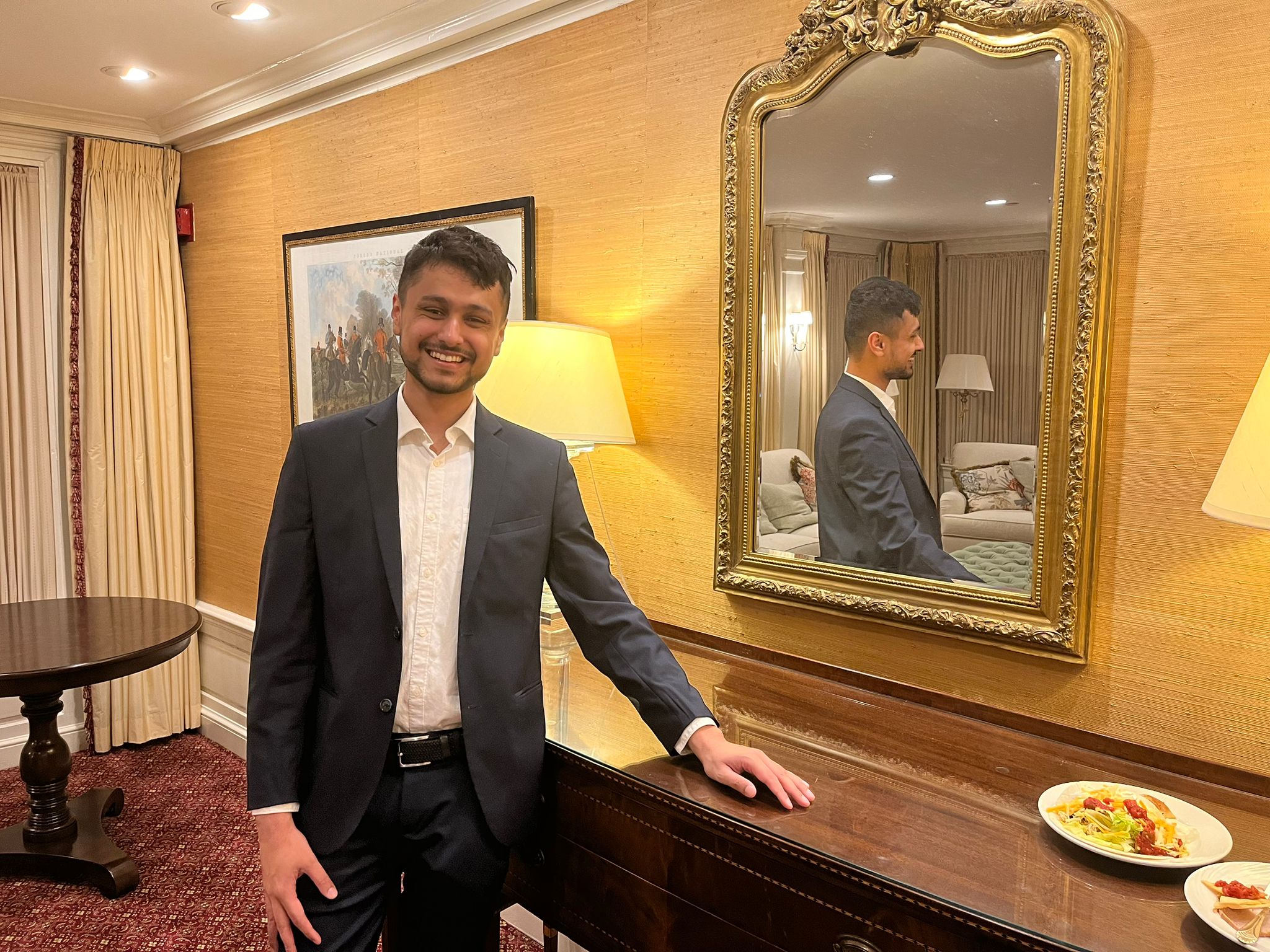
Translating to Industry and Lessons for Corporations and prospect Employees
To give context about the line coming up, the last time I picked up a book to read was back in 2018 after graduating from high school. It was a Steven Gerrard autobiography since I am a big Liverpool fan. Now, at CMU, since I was experiencing a new career interest I had not flirted professionally with, I believed it was only time to pick up a book on Sales. The book is Fanatical Prospecting by Jeb Blount. It gave insights into industrial dynamics and a lot to apply in the capstone environment at MRSD. It also felt validating as I was already following almost all those tactics.
This change adjusted the type of jobs I was aiming for. I met a mentor and asked if I should change my job search now or years later. He said something that made this decision super easy. When else? What kind of environment will make it suitable for a change? How will that environment be any different than now? And is the wait worth it? He has experience, and he told me it seldom is. I was sending my resumes for roles I thought would be the right intersection of my skills and interests. I did not care about a big company. I cared about the right company. And how did I get it? Networking and persistence. At the Pittsburgh Robotics Discovery Day in 2022, I saw two companies that did things similar to what I had done in my undergrad and struck up a conversation with one of the Vice Presidents at the company. He was impressed by my ideas and decided to exchange contact information. They opened up an internship role that was the ideal fit, and I went for it. Everything worked out except the timeline. So, it was initially a no. I understood and gave it some time. It did not feel right. If everything is a good fit, I will make the most of my time there, even if it is short. So, I persisted. I sold myself in another email, in another screening call, and a week later, they gave me an offer. I was late to the internship party, yet my offer was comparable to people working on the West Coast despite working in Pittsburgh. It is funny how if YOU believe in yourself, people around you will start believing in YOU. I also mention this so that students can rise above the assumption that you NEED to work for a big company or you NEED to go to the West Coast to learn more or get a high-paying job.
People at the company were starting to see my value, and I felt so happy. I paid that acknowledgment back with the most sincere intention and hard work. During my internship, my manager constantly told me not to overwork because he would see me leaving late through the Ring notification. I was not doing it because I was supposed to. I was doing it because I was so excited to see it through that I did not want to leave it for another day. My ideas had a say in the project direction or when communicating with customers. They gave me a lot of ground to fail fast and learn fast. It is funny how straightforward it is that employees will work their best if you recognize their values and needs, give them autonomy, and compensate them fairly. Yet, corporations fail at it.
And the work I did? Sales, Business Development, engaging with customers? Yes, fine. Those were the things that I was interested in. That is obvious. But, I spent significantly more time on software and hardware. I wrote more code than I ever imagined myself writing. None of this was because somebody delegated me this work. All of it was because I thought of an idea and wanted to make it a reality. It is almost like employees work with a purpose if you give them enough autonomy. (wink wink, big corps) I learned so much through that process. Communication protocols, translating foreign instruction manuals, performing woodwork, figuring out address registers, recreating my company’s marquee product all by myself, data cleaning, building models, optimizing data rate, procuring appropriate hardware on a deadline crunch, troubleshooting partner company’s code, supporting software updates, and surprising the partner company with proofs-of-concept using their product. If someone had laid down these responsibilities to me in the job description, I probably would not have applied because of the technical nature of the job. Yet here I was, doing all of it. So I can do it when it matters. This experience also made me recognize what factors play a role in defining work-life: autonomy, people, and mission.
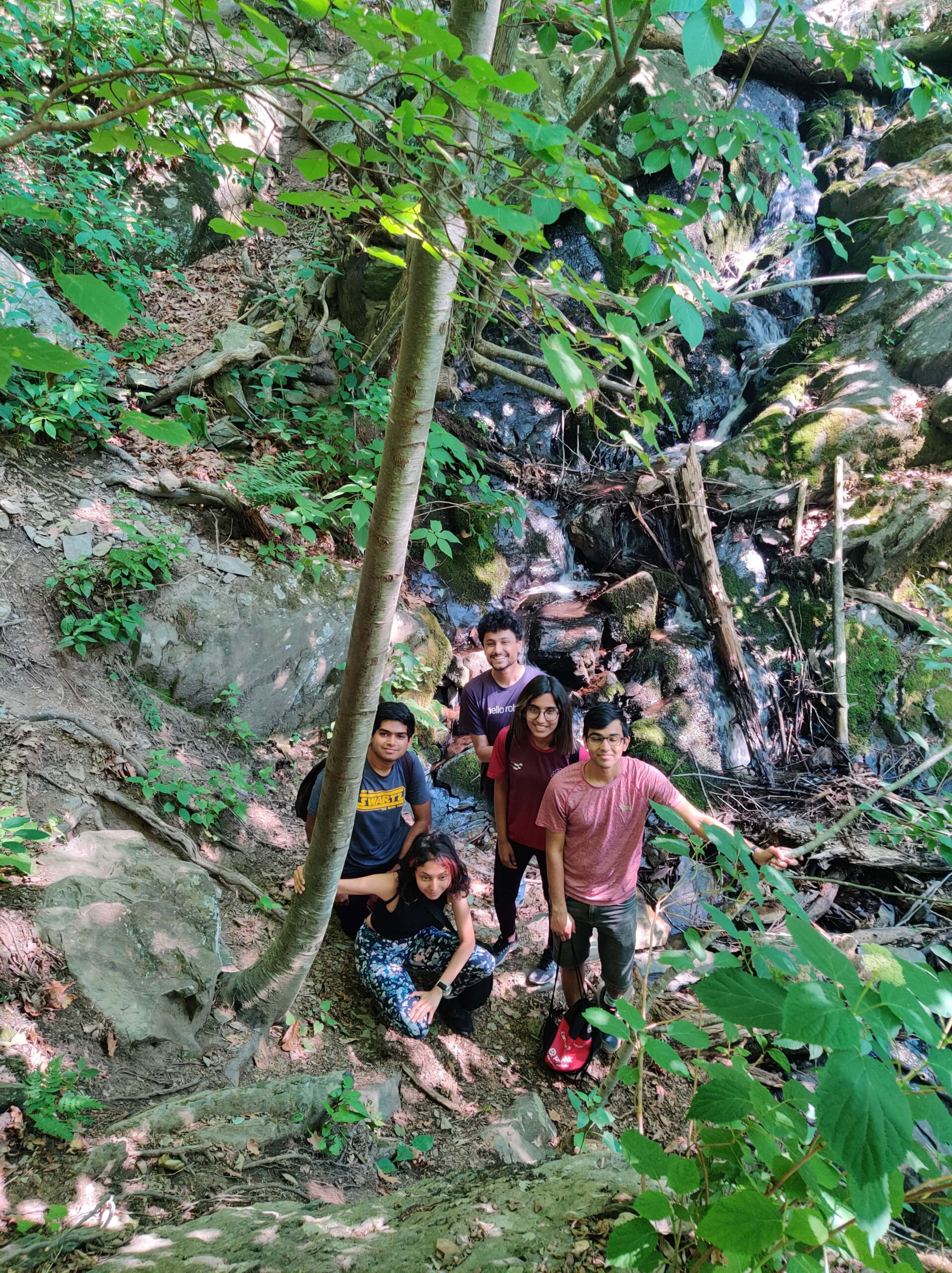
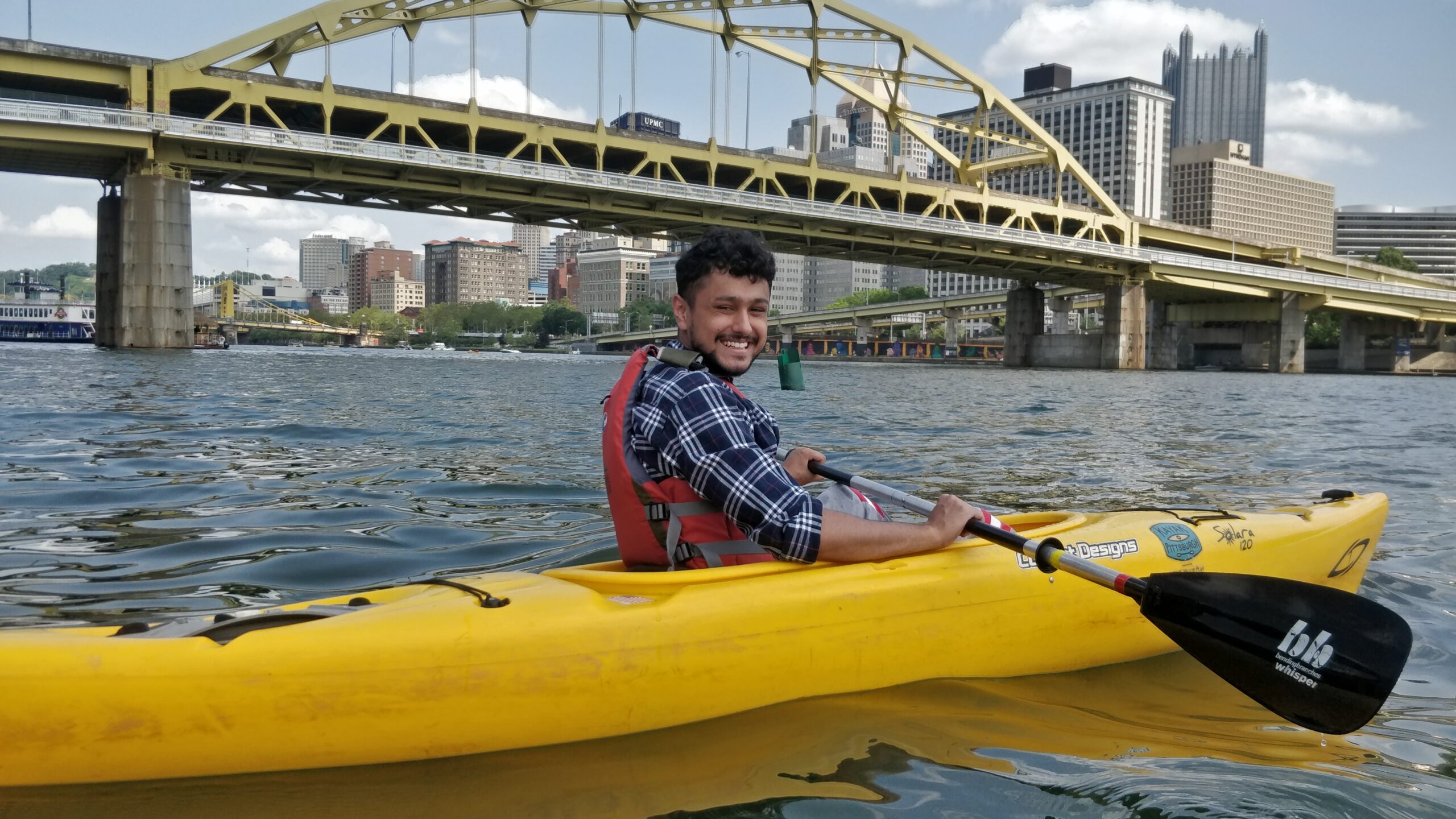

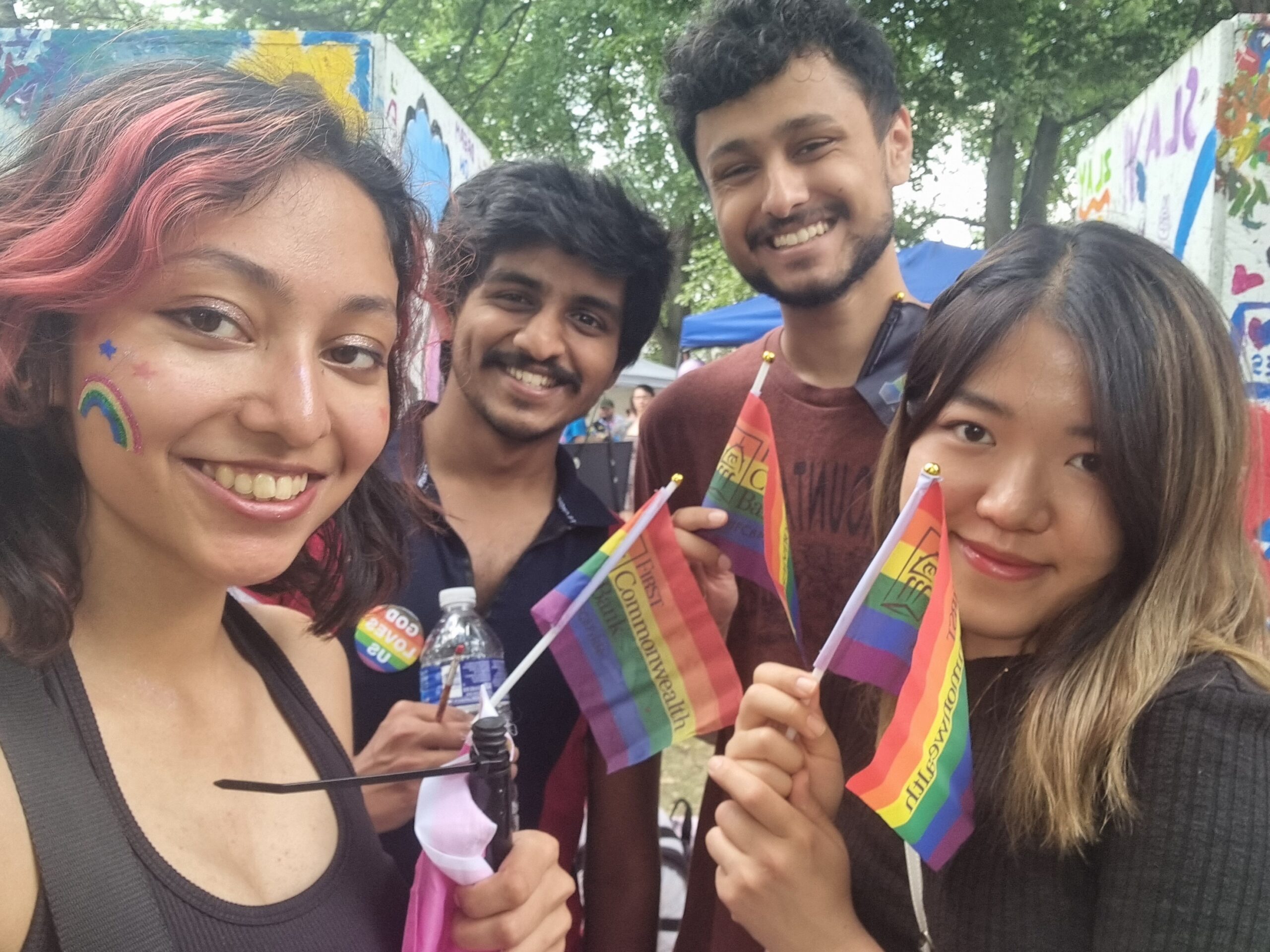
Personal Learnings
This work ethic carried onto the third semester. I started having much more tolerance for working with code. I was part of two people solely responsible for a system we wanted to deploy in a local assistive healthcare facility. This responsibility required owning subsystems, testing systems, problem-solving, extensive troubleshooting, and sticking to the principles that Systems Engineering taught us. My teammates were surprised by my increased contributions towards the tech side while maintaining my quality for the business and customer work. It felt fun to work late at night trying to make things work instead of being discouraged by code. I think the reason is that I had teammates who could stick to the basics and work up the solution to a problem rather than having a non-malleable mindset. This point is when I found the freedom to realize that maybe I am not super inclined to do anything software or physics-related because I am not interested, and something else is for me. Or, the person explaining it might be a subject expert but not the best subject explainer. I can do it if I want to. But, regardless, I unlearned to let any of that for a second let me believe that I am not good enough. And I want to thank my teammates for acknowledging my goals, have patience, and allow me to practice it. They were always candid with their feedback, and I appreciate that wholeheartedly. It is a team like that that can check off all the boxes. I am delighted with the team’s output and the journey we took. It is also the only project featured on the SCS news page. (CMU Team Explores Future of Caregiving With Assistive Robot) You can check the project here: Team F: Auxilio Robotics (MRSD 2024).
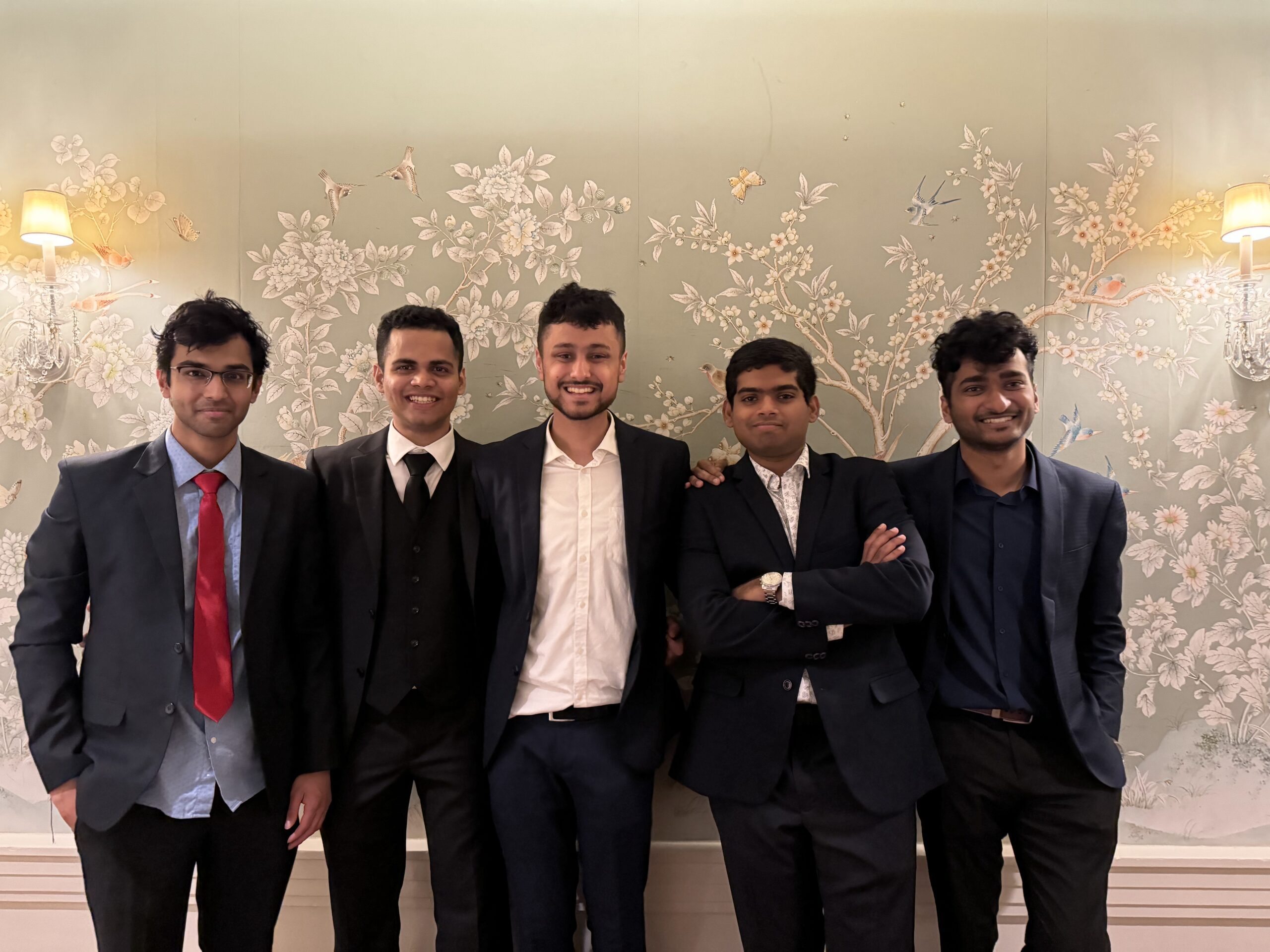
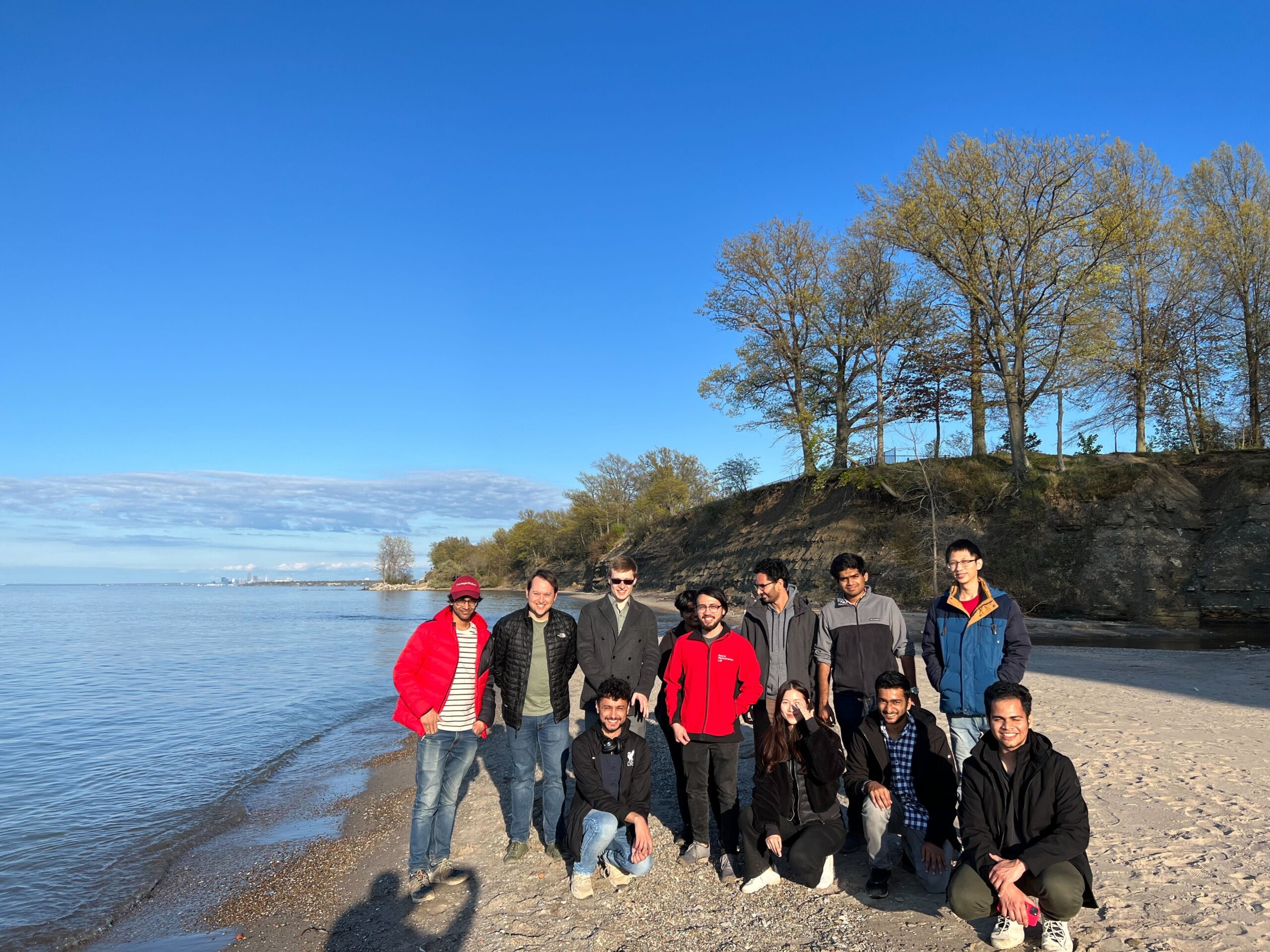
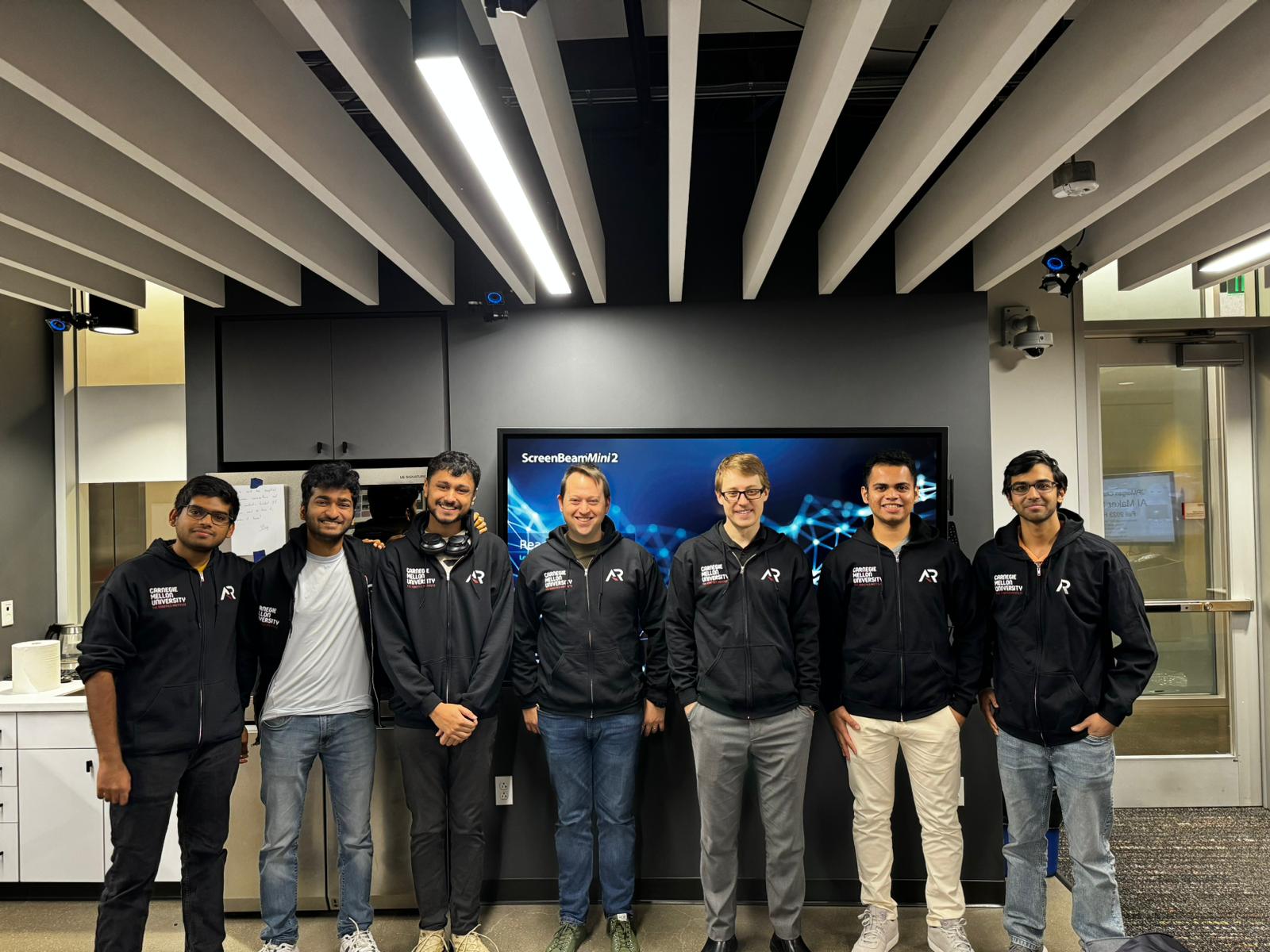
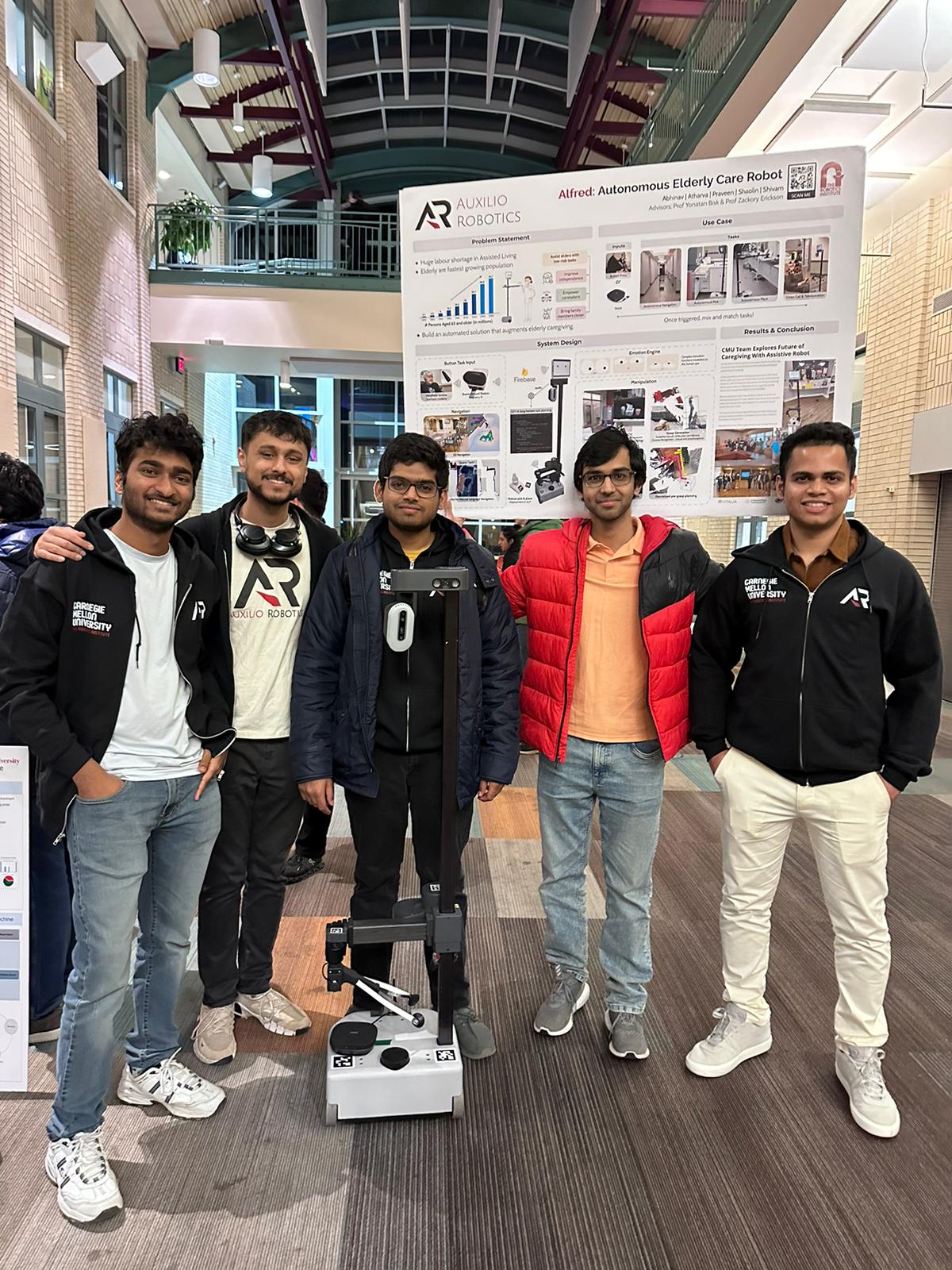
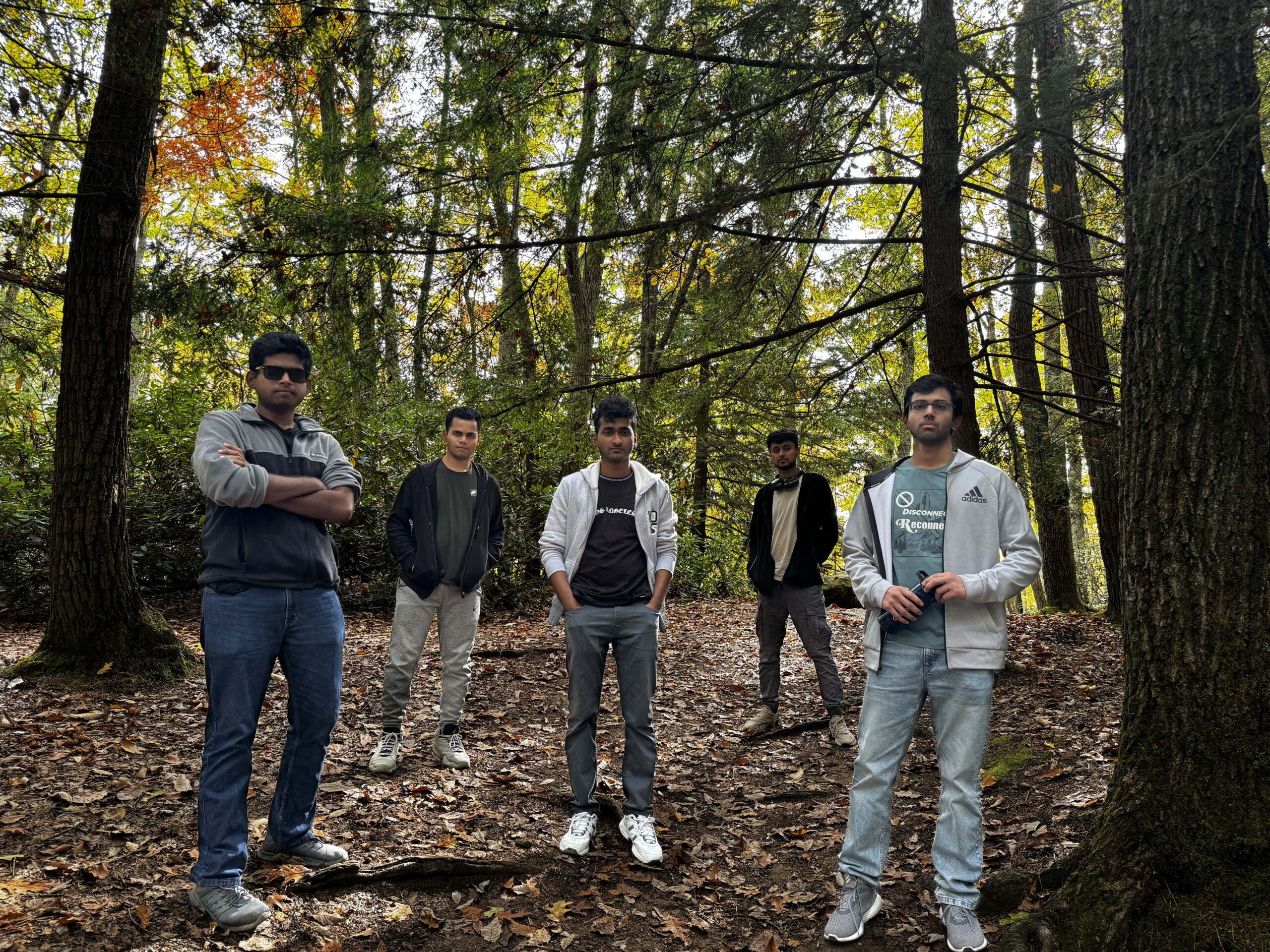
Never Settle
Things had started to work well for me, and I could continue with this newly formed comfort zone and revel in it. But, being who I am. I always want to take it a notch further, even if it embarrasses me. My OnePlus 7 broke, but I will always carry the lesson: Never Settle. I took up more diverse coursework in the fourth semester to cover more areas since it was my last. I performed international crisis negotiations and economic development for cities while doing acting and salsa on the side. I am also on CMU’s version of the TV series Survivor.
I became involved in a startup that focuses on amateur sports media. I did this because I had no experience in SaaS startups and wanted to explore amateur sports contacts. I am also working on a Space Robotics project, Moonranger, set to go to the moon in two years. I did not need to do any of this. I have already proven to myself, my parents, and my mentors here at CMU with everything I have done. But that is not the point. The point is to be an unrecognizable force. I could have just focused on finding a job. But we do these things not because they’re easy. We do these things because they are hard. But, most importantly, we do it with a smile. That is the spirit of MRSD. That is the fire you will see in every eye you come across when you come to Newell Simon Hall. Even if not everyone might have it for Robotics, they have that. That is why they are there. And if MRSD admits you, always remember that THAT is WHY you are here.
My problems
don’t define me don’t limit me don’t concern me
empower me
As much as it is necessary to add the program aspects to this blog, it is equally important to be vulnerable so that anyone who goes through something similar can breathe easier if they read this and see that I survived. I have had difficulties physically and mentally. I am not denying them. I am different. Everyone is. I acknowledge it.
Mentally:
I mentioned some of them in my blog. I will not list everything here because this is not the appropriate context. At a point in my life when I have a much larger platform and better-articulated clarity on the matter, I will be happy to share my story. Till then, I can tell you about my journey. I tried to address them individually through therapy. It was a long process, and it took half a year for me to make peace with myself. It took a lot of intention with improvement, vulnerability with guilt and thoughts, trust in the process, and stepping outside my comfort zone to try new things. It was possible through CaPS on campus. Your health insurance covers all the sessions. You do not need to go to the extreme to seek help. You can start now. Please make use if things get overwhelming, thoughts get overbearing, or you need clarity on something. Think of it as life coaching. Not just as a “cure”.
Physically:
The Pittsburgh cold is not kind. It does not help when you move into a house where the heating system does not work equally for all the rooms. It does not help if you have a chronic illness like asthma. It de-energizes you, makes you feel lethargic, induces doubt, makes you feel less, and makes you consider things like life span.
Sometimes, I think about things like these, and I wonder. Why me? Why did all of these problems come to me? But then, I remember. They shape me. I vent internally, but then I calm down. Others may be without these problems, but I have the privilege of carrying the strength and willpower to get through the darkest times. I am more tuned to outlast tough battles. God has given me this life, and I’m thankful for that. I take a puff in, and I sit down. I get back to work with a smile on my face. I try to make my friends happy. I am going to serve my purpose. This rise in personal and professional growth has made me more confident about the job season. Who wants me? Who wants this bundle of mentality, grit, passion, and sincerity?
So, the MRSD experience? I heard they will give me a Robotics Masters degree on the 10th of May, but I feel like I have been reaping the rewards far before that. Not just for Robots. But for life.
If any of you reading this for a second can look within yourselves and urge yourself to be better, more trustworthy, more kind towards yourself, develop a habit of being intentional about your actions and speech, and believe, my job here is complete. Thank you.
Always feel free to connect on LinkedIn or via email.
www.linkedin.com/in/shaolink
Or, if you want to chat, calendly.com/shaolink.
